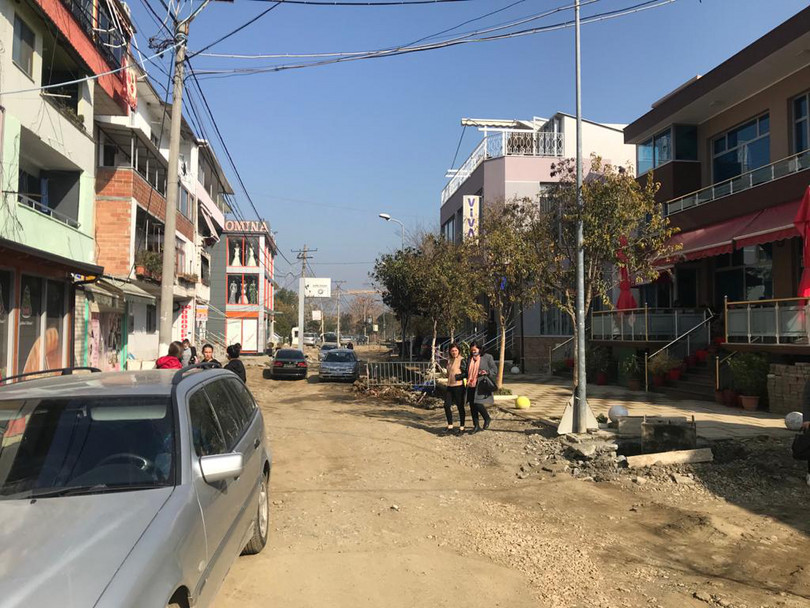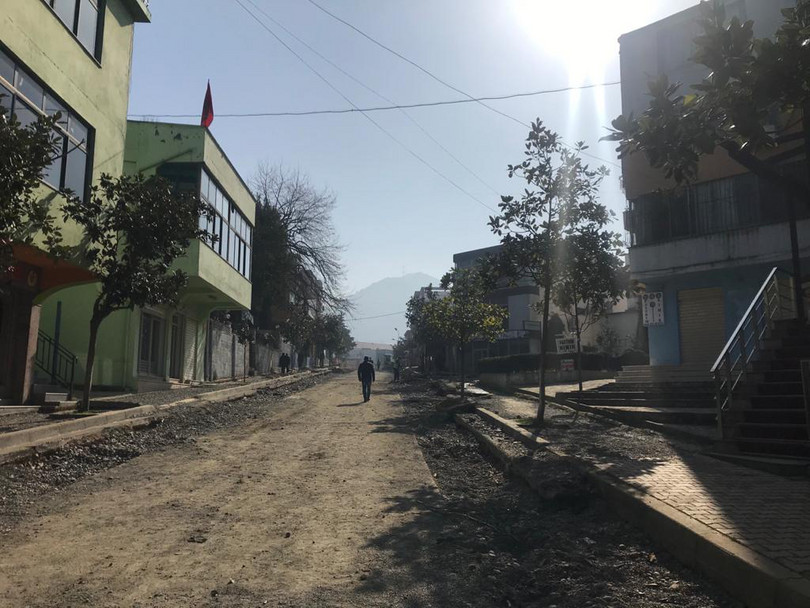The ‘hawks’ of Kurbin: a school of thieves.
In recent years, break-ins and thefts at the homes of football players and celebrities have made the headlines in Spain and Italy. Many of the perpetrators are young men who come from the same region, namely Kurbin in Albania.
Kurbin is a municipality 50 kilometres north of the Albanian capital, Tirana. It borders the Adriatic Sea in the west. During the communist period, the main town of Lac, once a rural area, developed into an important centre for industry. As a result, Lac was ranked as the second most important city in northern Albania by size, population and economic importance.1
However, with the fall of communism in the early 1990s, the factories were closed. Unemployment rose and many people migrated to Greece and Italy to seek work. The municipality was also badly hit by the civil unrest that swept through Albania in 1997 after the collapse of a pyramid scheme. The violence left a legacy of criminality, guns and a culture of lawlessness.2 This became a fertile environment for young people to turn to a life of crime.
Youth from Kurbin developed a reputation for being skilled thieves, robbing luxurious villas and cars in Western Europe. They gained the attention of law enforcement authorities and the media in Milan and Turin after they robbed several celebrities, including football players.3 Liberalization of travel within the Schengen area in 2010 created increased opportunities for Albanians to travel.4 Thieves from Kurbin took the opportunity to expand their reach into Andorra, Belgium, France, Luxembourg, the Netherlands, Spain and Switzerland.


Kurbin, a town in Albania strongly hit by unemployment and violence, has become a breeding ground for burglars.
Photo: Desarta Mejdini
Young men returning from their ‘adventures’ abroad with expensive cars, clothing and jewellery became role models for poor and impressionable kids in Kurbin who wanted to be as ‘successful’ as their new heroes.5 By 2015 and 2016, the phenomenon became so widespread in the area that some youngsters dropped out of school in order to travel abroad and engage in thievery. Young men with experience in breaking and entering passed on their skills to the younger ones in what became a de facto school of crime. From this recruitment ground, teams were assembled and spread out across Europe to conduct robberies.
High-profile burglaries of villas of famous football players from Spanish clubs like Real Madrid and Barcelona further boosted the myth of the thieves from Kurbin.6 The media dubbed them the ‘hawks’ for their swift and predatory skills. The thieves became part of Albanian popular culture, with TV shows and movies depicting, and sometimes satirizing, the lavish and thieving lifestyles of the young men from Lac.7 However, the less glamourous aspects of the hawks have received less attention: young men killed in car chases with the police or becoming disabled after falling from heights during a break-in.8
Despite the high-profile media attention given to the problem, little has been done to address it. Kurbin remains one of the poorer areas of Albania with high levels of unemployment, particularly for youth.9 The situation was exacerbated by the November 2019 earthquake that destroyed almost half of all buildings in Lac.10 COVID-19 has further deepened economic vulnerabilities.
Some of the few initiatives that have been made to give young people from Kurbin alternative pathways have come from civil society groups like the Sebastia Youth Centre, profiled below.
Notes
-
Xhilda Dedaj and Sonila Papathimiu, Environment Impact of Ex-Industrial Areas in Laç and Rubik and the Possibilities for Their Functional Transformation—a Comparative Analysis, European Journal of Economics and Business Studies, 3, 3, 184-193, http://journals.euser.org/files/articles/ejes_sep_dec_17/Xhilda.pdf. ↩
-
Siobhan Darrow, Albania deteriorates into chaos, CNN, 13 March 1997, http://edition.cnn.com/WORLD/9703/13/albania.late/index.html?iref=allsearch. ↩
-
AC Milan’s Gattuso Stolen Car Found in Albania, BIRN, 12 November 2009, https://balkaninsight.com/2009/11/12/ac-milan-s-gattuso-stolen-car-found-in-albania/. ↩
-
European Commission, Visa liberalisation: Commission reports on the continued fulfilment of requirements by the Western Balkans and Eastern Partnership countries, 10 July 2020, https://ec.europa.eu/commission/presscorner/detail/en/ip_20_1327. ↩
-
Interview with a representative of civil society in Kurbin, 11 February 2021. ↩
-
Rodrigo Faez, Sources: Police arrest group in connection with La Liga home invasions, ESPN, 17 October 2019, https://tv5.espn.com/football/real-madrid/story/3966879/sources-police-arrest-group-in-connection-with-la-liga-home-invasions. ↩
-
Portokalli (30 April 2017), Top Channel, 1 May 2017, https://www.youtube.com/watch?v=F11XCDYC7hU. ↩
-
Interview with a journalist from Kurbin, 12 February. ↩
-
Albanian Institute of Statistics (INSTAT) database, Treguesit tremujorë sipas qarqeve për grupmoshën 15 vjeç e lart sipas Gjinia, Qarku, Variabla dhe Tremujori, http://databaza.instat.gov.al/pxweb/sq/DST/START__TP__LFS__LFSQ/NewLFSQ003/?rxid=ae587ccd-002c-4cb3-ac5f-b7b4709466de&fbclid=IwAR39rr9F4-1vStRRjw-GX1PFD9GT1YbYqxaBZ-5my_TgbOHxs7xtVi58dwQ. ↩
-
Elvis Hila, Gati gjysma e pallateve në Laç shpallen paraprakisht ta pabanueshëm, Reporter, 3 December 2019, https://www.reporter.al/gati-gjysma-e-pallateve-ne-lac-shpallen-paraprakisht-ta-pabanueshem/. ↩
